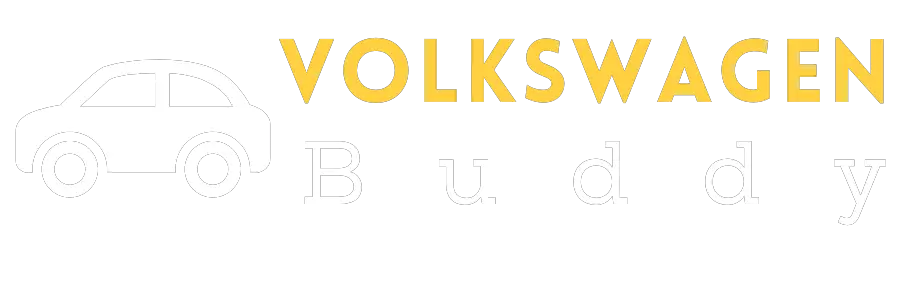Where Are Volkswagen Tiguans Made? You Won’t Believe 6!
Volkswagen Tiguans are made in a variety of locations around the world, including Germany, Mexico, and China. The first-generation Tiguan was produced in Germany from 2007 to 2015, and the second-generation Tiguan is currently produced in Germany, Mexico, and China.
Where Are Volkswagen Tiguans Made
The Volkswagen Tiguan is a compact SUV that is produced in several locations around the world. The first-generation Tiguan was produced in Wolfsburg, Germany, from 2007 to 2015. The second-generation Tiguan is produced in Puebla, Mexico, and Chattanooga, Tennessee, United States.
Where are Volkswagen Tiguans made?
Volkswagen Tiguan production locations
The Volkswagen Tiguan is a compact SUV produced by the German automaker Volkswagen. The Tiguan is currently produced in four locations around the world:
Volkswagen’s Wolfsburg plant in Germany, which produces the Tiguan for the European market.
Volkswagen’s Puebla plant in Mexico, which produces the Tiguan for the North American market.
Volkswagen’s Zwickau plant in Germany, which produces the Tiguan for the Chinese market.
Volkswagen’s Anting plant in China, which produces the Tiguan for the Chinese market.
Volkswagen Tiguan assembly process
The Volkswagen Tiguan is assembled on a moving assembly line, where each vehicle is built from a series of pre-assembled components. The assembly process begins with the body shell, which is welded together from a number of stamped metal panels. The body shell is then painted and trimmed with interior components, such as seats, dashboard, and trim panels. Finally, the engine and transmission are installed, and the vehicle is road tested before being shipped to dealerships.
Volkswagen Tiguan quality control
Volkswagen has a rigorous quality control process in place to ensure that all Tiguans meet the company’s high standards. Each vehicle is inspected at multiple stages of the assembly process, and any defects are corrected before the vehicle is shipped to dealerships. Volkswagen also conducts road tests on all Tiguans to ensure that they meet the company’s performance and safety standards.
Conclusion
The Volkswagen Tiguan is a high-quality compact SUV that is produced in four locations around the world. The Tiguan is assembled on a moving assembly line, where each vehicle is built from a series of pre-assembled components. Volkswagen has a rigorous quality control process in place to ensure that all Tiguans meet the company’s high standards.
Also Read: Does Volkswagen Have A Hybrid
FAQs: Where are Volkswagen Tiguans made?
Where are Volkswagen Tiguans made?
Volkswagen Tiguans are made in Puebla, Mexico.
What is the difference between a Volkswagen Tiguan and a Volkswagen Atlas?
The Volkswagen Tiguan is a compact SUV, while the Volkswagen Atlas is a mid-size SUV. The Tiguan is smaller and more fuel-efficient than the Atlas, but it has less cargo space.
What are the different trim levels of the Volkswagen Tiguan?
The Volkswagen Tiguan is available in three trim levels: S, SE, and SEL. The S trim is the base model and comes with features such as a 17-inch wheels, a six-speaker audio system, and a rearview camera. The SE trim adds features such as a 18-inch wheels, a panoramic sunroof, and a leather-wrapped steering wheel. The SEL trim is the top-of-the-line model and comes with features such as a 20-inch wheels, a navigation system, and a Bose audio system.
What are the engine options for the Volkswagen Tiguan?
The Volkswagen Tiguan is available with two engine options: a 2.0-liter turbocharged four-cylinder engine and a 2.0-liter turbocharged four-cylinder engine with a hybrid system. The 2.0-liter turbocharged four-cylinder engine produces 184 horsepower and 221 pound-feet of torque. The 2.0-liter turbocharged four-cylinder engine with a hybrid system produces 248 horsepower and 279 pound-feet of torque.
What is the fuel economy of the Volkswagen Tiguan?
The Volkswagen Tiguan has a fuel economy of 22 city/30 highway mpg with the 2.0-liter turbocharged four-cylinder engine and 20 city/29 highway mpg with the 2.0-liter turbocharged four-cylinder engine with a hybrid system.

![How Reliable Is Volkswagen: [Get Answer]](https://volkswagenbuddy.com/wp-content/uploads/2024/02/how-reliable-is-volkswagen-get-answer_1938-768x531.jpg)
![00 Volkswagen Beetle Stereo Rear Speakers Not Working [You Should Try This]](https://volkswagenbuddy.com/wp-content/uploads/2024/05/00-volkswagen-beetle-stereo-rear-speakers-not-working-you-should-try-this_3906-768x531.jpg)
![Volkswagen Heating Not Working: [Solved]](https://volkswagenbuddy.com/wp-content/uploads/2024/02/volkswagen-heating-not-working-solved_237-768x531.jpg)
![Are Audi And Volkswagen The Same Company [Answered]](https://volkswagenbuddy.com/wp-content/uploads/2024/02/are-audi-and-volkswagen-the-same-company-answered_1579-768x531.jpg)
![Do Volkswagen Tiguan Have A Lot Of Problems: [Get Answer]](https://volkswagenbuddy.com/wp-content/uploads/2024/02/do-volkswagen-tiguan-have-a-lot-of-problems-get-answer_738-768x531.jpg)
![05.5 Volkswagen Jetta Auto Lights Not Working [Fix It Now!]](https://volkswagenbuddy.com/wp-content/uploads/2024/05/05-5-volkswagen-jetta-auto-lights-not-working-fix-it-now_3912-768x531.jpg)